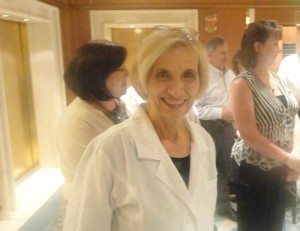Be in the Know…
Probiotics Promising for Mild to Moderate Depression
Investigators led by Caroline Wallace, PhD candidate, Queen’s University, Kingston, Ontario, Canada, found that symptoms of mood, anhedonia, and sleep disturbance were significantly reduced with probiotic therapy after just 4 weeks, with results maintained at 8 weeks.
For More Information See:
Medscape Medical News © 2017
Cite this article: Probiotics Promising for Mild to Moderate Depression – Medscape -Jun 21, 2017.
Surgery May Help in Diabetic Neuropathy With Squeezed Leg Nerves
Results of the Diabetic Neuropathy Nerve Decompression (DNNP) randomized controlled double-blinded prospective study were presented at the American Diabetes Association (ADA) 2017 by Shai Michael Rozen, MD, associate professor of plastic surgery at the University of Texas Southwestern Medical Center, Dallas.
For More Information See:
Medscape Medical News © 2017
Cite this article: Surgery May Help in Diabetic Neuropathy With Squeezed Leg Nerves -Medscape Jun 21, 2017.
Did You Ever Wonder How We Find the Right Word to Say?
A new study led by San Diego State University neuroscientist Stephanie Ries of the School of Speech, Language, and Hearing Sciences suggests that word-finding is much less localized and involves several more regions of the brain than previously thought—making it an even more complex process. Word retrieval is usually effortless in most people, but it is routinely compromised in patients who suffer from anomia, or word retrieval difficulty,” Ries said.
For More Information See:
San Diego State University. “Mapping how words leap from brain to tongue: Neuroscientist explores the complex brain connections employed during word retrieval.” ScienceDaily. ScienceDaily, 19 June 2017. .
https://www.sciencedaily.com/releases/2017/06/170619144827.htm
Extra-Virgin Olive Oil Preserves Memory; Protects Brain Against Alzheimer’s
Researchers at the Lewis Katz School of Medicine at Temple University (LKSOM) have identified a specific ingredient that protects against cognitive decline: extra-virgin olive oil, a major component of the Mediterranean diet.
For More Information See:
Temple University Health System. “Extra-virgin olive oil preserves memory, protects brain against Alzheimer’s.” ScienceDaily. ScienceDaily, 21 June 2017.
https://www.sciencedaily.com/releases/2017/06/170621103123.htm
Everyone Should Read as Much as Possible, Even If It’s a Challenge
Falk Huettig, a senior investigator at the Max Planck Institute for Psycholinguistics in the Netherlands, who led the study, published May 24 in the journal Science Advances, said that the better the coordination between the thalamus and the visual cortex, the better a person’s reading performance. This gives us insight into disorders such as dyslexia.
For More Information See:
https://www.livescience.com/59335-adults-who-learn-to-read-show-profound-brain-plasticity.html
Your Brain Power Is Reduced When Your Smartphone Is Nearby
A new study from the University of Texas at Austin found that the mere presence of your smartphone reduces cognitive capacity – even it it’s off.
For More Information See:
University of Texas at Austin (UT Austin). “The mere presence of your smartphone reduces brain power, study shows.” ScienceDaily. ScienceDaily, 23 June 2017.
https://www.sciencedaily.com/releases/2017/06/170623133039.htm
+++++++++++++++++++++++++++++++++++++++++++++++++++
![]()


